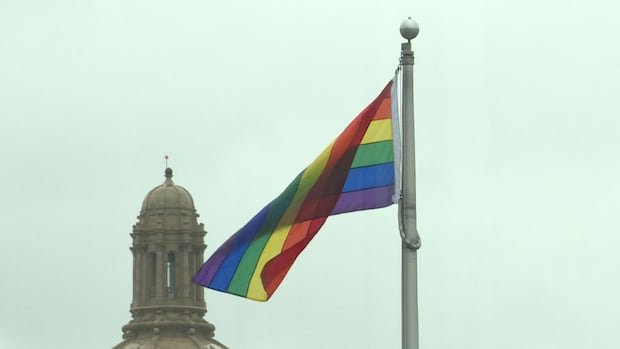Alberta Premier Danielle Smith’s office has instructed officials to utilize the Charter’s notwithstanding clause in modifying three laws affecting transgender individuals, according to a leaked government memo obtained by The Canadian Press. The internal memo, dated Sept. 10 and issued by the justice department, requests other departments to gather information in compliance with the directive from Smith’s office to invoke the clause. Malcolm Lavoie, deputy minister of justice, states in the memo that the premier’s office has mandated the development of legislation for the upcoming legislative session to amend specific laws, enabling them to operate notwithstanding the Canadian Charter of Rights and Freedoms and the Alberta Bill of Rights.
The confidential memo emphasizes the sensitive nature of this legislative initiative and stresses the need for utmost confidentiality. Officials are tasked with preparing background information on legal implications and exploring alternative options. The plan outlined in the memo involves briefing Smith in advance and presenting the proposal to the cabinet on October 21, just before the house resumes sitting with a throne speech two days later. CBC News has not independently verified the contents of the memo.
Responding to inquiries about the memo, Justice spokesperson Heather Jenkins issued a brief statement affirming the government’s commitment to safeguarding children’s safety and well-being through all available legal and constitutional means, including the notwithstanding clause if deemed necessary.
The three laws in question, introduced the previous year, cover regulations concerning students’ name and pronoun changes in schools, participation of transgender girls in amateur female sports, and restrictions on gender-affirming healthcare services.
Advocacy groups Egale and Skipping Stone have initiated legal challenges against the school pronoun law and healthcare restrictions for transgender youth, alleging discrimination. Helen Kennedy, executive director at Egale Canada, condemned the use of the notwithstanding clause as an assault on the 2SLGBTQI community and all Canadians.
The notwithstanding clause, a seldom-used provision allowing governments to override specific Charter sections for up to five years, has been considered by Smith as a final resort in addressing the government’s transgender health policies. Smith remains confident in the legality of such measures and their ability to withstand Charter challenges.
Legal battles surrounding these laws are ongoing, with the injunction on gender-affirming treatments for youth under 16 still in place due to a court ruling issued in June. The education law has been enacted, requiring parental consent for students under 16 to change their names or pronouns in school. The third law, which prohibits transgender athletes aged 12 and above from competing in female amateur sports in Alberta, is currently in effect.
Alberta’s government, under Premier Smith’s direction, is actively pursuing all necessary legal and constitutional avenues to enforce the sports law in its entirety. The use of the notwithstanding clause is not unique to Alberta, as Saskatchewan also employed it in a similar school pronoun law that is facing legal challenges.
In a separate development, Alberta filed arguments in a significant Supreme Court of Canada case involving Quebec’s secularism law, supporting Quebec’s use of the notwithstanding clause to protect provincial parliamentary sovereignty. Prime Minister Mark Carney has expressed opposition to the preemptive use of the notwithstanding clause.

